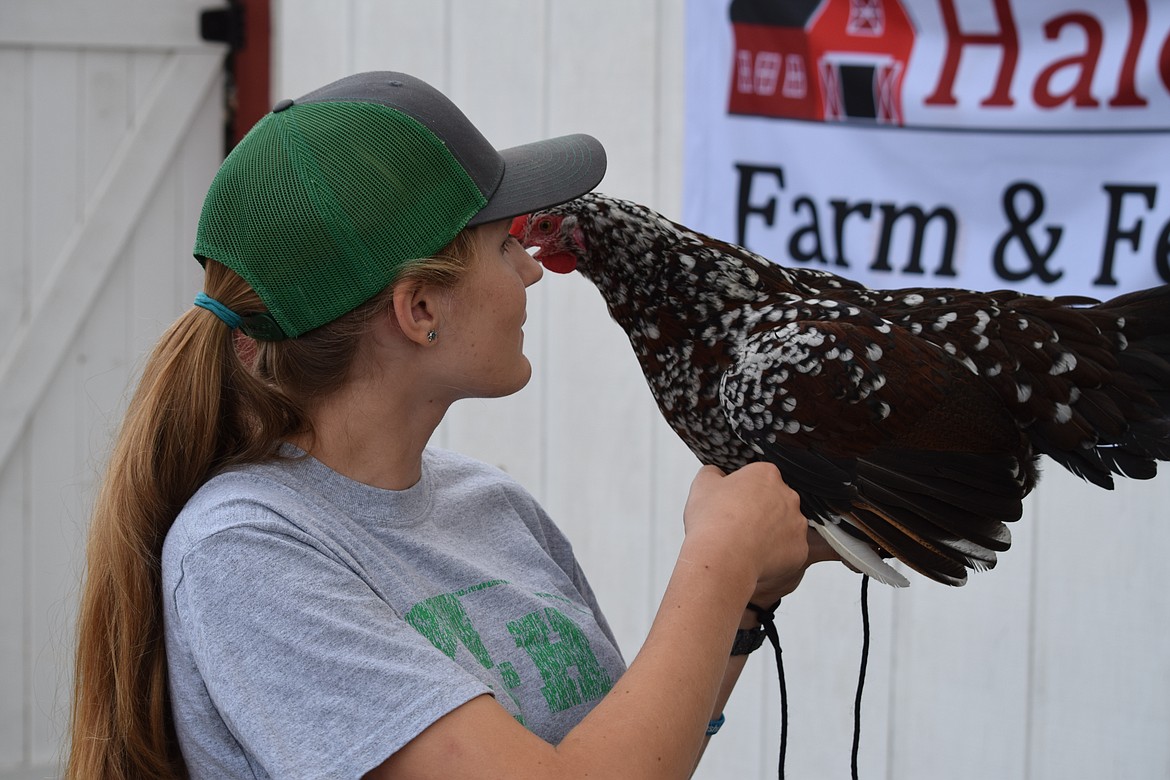Grant Co. fair cancels poultry showings and auctions as bird flu persists
MOSES LAKE — Organizers of this year’s Grant County Fair have canceled in-person poultry exhibitions and auctions this year in response to the ongoing avian influenza outbreak.
“We made the decision to pull the plug on in-person showing of birds,” said Grant County Fairgrounds Director Jim McKiernan. “We don’t want to be the reason there’s a major outbreak.”
McKiernan said the decision was made by the fair’s livestock committee this week in cooperation with the Future Farmers of America and 4H. All three groups wanted to hold off making that decision, he said. However, the announcement by the Washington State Department of Agriculture on July 19 that another case of bird flu was found in a backyard flock in Snohomish County prompted the decision.
McKiernan said 4H and FFA students who want to show birds will be able to do so remotely, online and through website photos, the same way birds were exhibited in 2020 following the shutdowns in response to the COVID-19 pandemic.
“There will be a virtual show and auction,” he said. “Yarbro Auctioneers will do the auction.”
The H5N1 strain of avian influenza has been reported in domesticated flocks of chickens, ducks and geese in 12 counties across Washington State and detected in wild birds in 15 counties, including Grant County, where the first discovery was reported in a snow goose on April 18.
According to the U.S. Department of Agriculture’s Animal and Plant Health Inspection Service, this year’s avian influenza outbreak has hit wild and domesticated bird flocks in 37 states, with Washington seeing the largest number of backyard flock infections at 29 flocks affecting 2,100 birds. The state worst hit by the epidemic is Iowa, which has reported cases from 15 commercial flocks and 4 backyard flocks affecting 13.4 million birds.
So far, since the bird flu pandemic broke out in February 2022, APHIS reports that over 40 million birds have been affected.
According to an online presentation given in late June by Katherin Haman, a wildlife veterinarian with the Washington Department of Fish and Wildlife, the current strain of avian influenza, H5N1, was initially spread by migrating waterfowl and appears to be considerably more deadly in wild birds. A number of the confirmed cases in wild birds in Washington have been found among predatory birds such as eagles and owls that likely scavenge the carcasses of dead waterfowl, she said during the presentation.
The region’s cool, wet spring and early summer have made for a perfect environment to spread the disease, Haman added. She noted that there is no treatment or cure, so infected domesticated birds must be destroyed in order to further prevent the disease from spreading.
In an email to the Columbia Basin Herald, Haman wrote Thursday that the arrival of summer, and especially the hot, dry weather in store for Eastern Washington next week, could make the disease disappear. The bulk of bird flu cases reported to APHIS came in April and May, with significant drop offs in June and July, the agency’s avian influenza website states.
“Or there’s a possibility that it will be more similar to what’s happening in Europe and it will continue to circulate and be found in wild birds,” Haman wrote. “We just don’t know — time will tell.”
During her online presentation, Haman said that while the disease appears limited right now to birds, it has also been reported in two species of mammals — striped skunks and red fox kits. No mammal infections have been reported in Washington.
According to the Centers for Disease Control in Atlanta, only one human case of H5N1 infection has so far been confirmed during this year’s outbreak.
“It is capable of infecting humans,” Haman said. “There’s no data supporting dogs at risk, but don’t let your dog eat the carcass of a dead bird.”
Haman said flock owners should report any sick domesticated birds to the Washington State Department of Agriculture’s Sick Bird Hotline at 800-606-3056. Anyone observing a sick wild bird should report that online at the the Department of Fish and Wildlife’s website at shorturl.at/agJR2. Haman added no one should touch a dead bird, and that people who regularly handle birds or work in areas with poultry should use a 10% bleach solution to disinfect their shoes and clothes and should regularly wash their hands.
Charles H. Featherstone can be reached at cfeatherstone@columbiabasinherald.com.
Counties where infected domestic poultry have been reported:
Clallam
Jefferson
King
Kitsap
Okanagan
Pacific
Pierce
Snohomish
Thurston
Whatcom
Yakima
Additional counties where infected wild birds have been reported:
Asotin
Benton
Franklin
Grant
Island
San Juan
Stevens
Walla Walla



